
Give trees (and frogs) a break
Cortes is very lucky to have forests like this because they are rare and quickly disappearing. Red legged frogs are rare too. They are provincially listed and declining in numbers. On Cortes Island, those rare forests are about to be logged, and the little frogs may be facing their last winter.
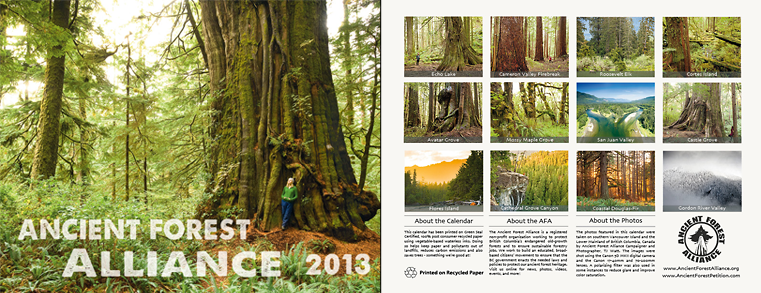
DECEMBER 19 & 20, 2012 — NEW 2013 AFA Calendars & other Holiday Gifts for Sale IN VANCOUVER!
In VANCOUVER, this WEDNESDAY and THURSDAY (Dec.19 and 20), come buy the AFA's mechandise or make a donation by meeting the AFA's Hannah Carpendale, who will be located at the vegan cafe and organic grocer Eternal Abundance (1025 Commercial Drive, between Napier and Parker) from 12pm-6:30pm for those two days. THANKS to Eternal Abundance for supporting the AFA with their facilities!
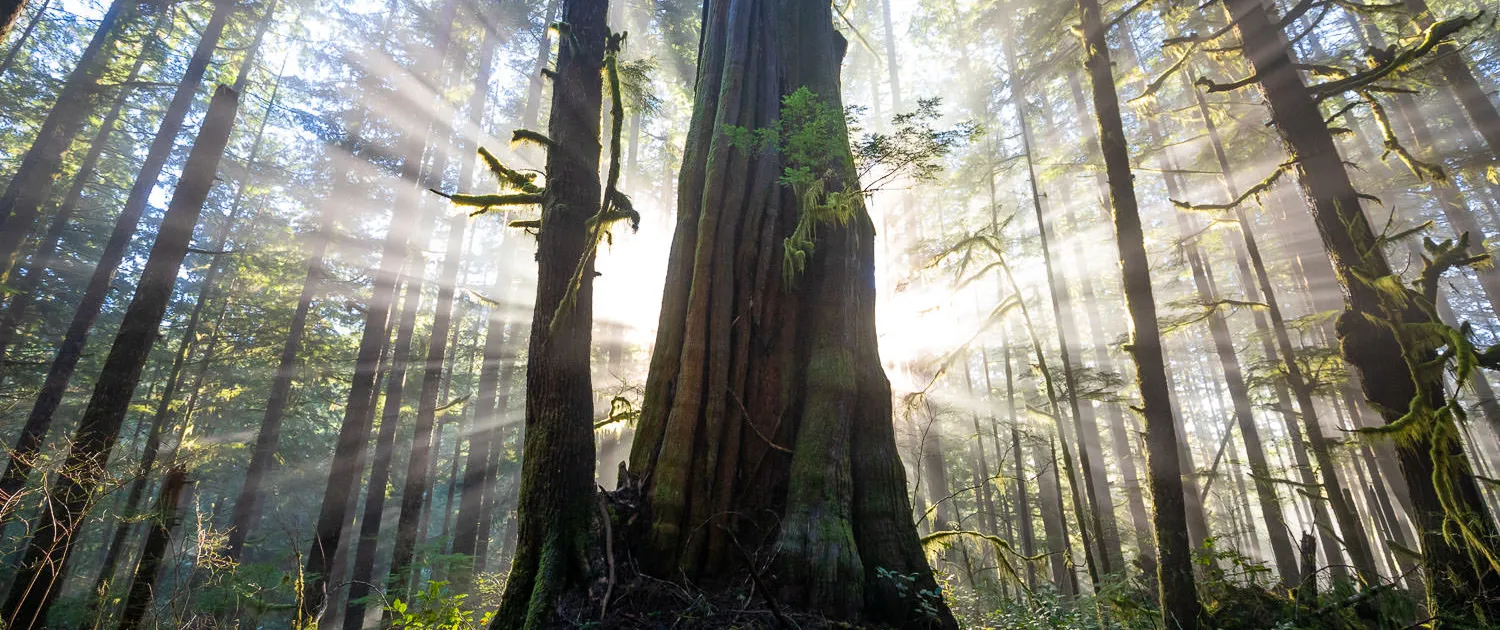
The Walbran Valley’s Castle Grove& – Canada’s Finest Old-Growth Cedar Forest
In the summer of 2012 survey tape for logging was discovered in the Upper Castle Grove. However, after a large-scale public awareness and mobilization campaign led by the Ancient Forest Alliance, the BC government announced in November that the company, Teal-Jones, had rescinded its plans to log the grove. Now, follow-up legal protection is needed for this incredible forest.
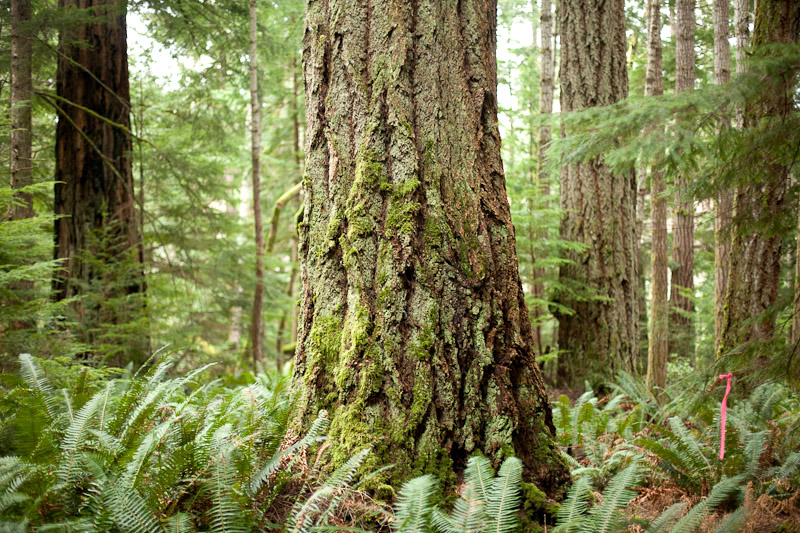
Province forsaken its role on Cortes
A big issue in the Cortes dispute is the extent to which our government regulates activity on private land. The private foresters claim they are governed by more than 30 acts and regulations. However, the environmentalists say companies like Timberlands are allowed to apply a model of “professional reliance” which means that there is little meaningful regulatory oversight.
It’s a pity the current administration has all but forsaken its role as steward and peacekeeper in the woods. A measure of leadership would go a long way right about now.
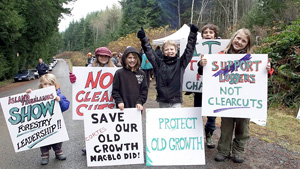
OUR VIEW: Provincial oversight missing in Cortes logging dispute
The current impasse over logging on private land on Cortes Island is unique by B.C. standards. In a province where wars in the woods have often been bitterly waged, the Cortes standoff stands apart.
Cortes environmentalists and Island Timberlands have been debating the company’s logging plans for about four years without coming to serious blows. The islanders are not trying to ban logging altogether, they are asking for Timberlands to adopt an ecosystem-based, selective logging harvesting plan that spares old growth.

Global TV News – Echo Lake & Bald Eagles
Echo Lake is a spectacular, unprotected, lowland ancient forest near Agassiz, BC on the east side of the Lower Fraser Valley. It is in the unceded territory of the Sts'ailes First Nations band (formerly the Chehalis Indian Band). The area is home to perhaps the largest concentration of bald eagles on Earth, where thousands of eagles come each fall to eat spawning salmon in the Harrison and Chehalis Rivers and hundreds roost in the old-growth trees at night around Echo Lake.
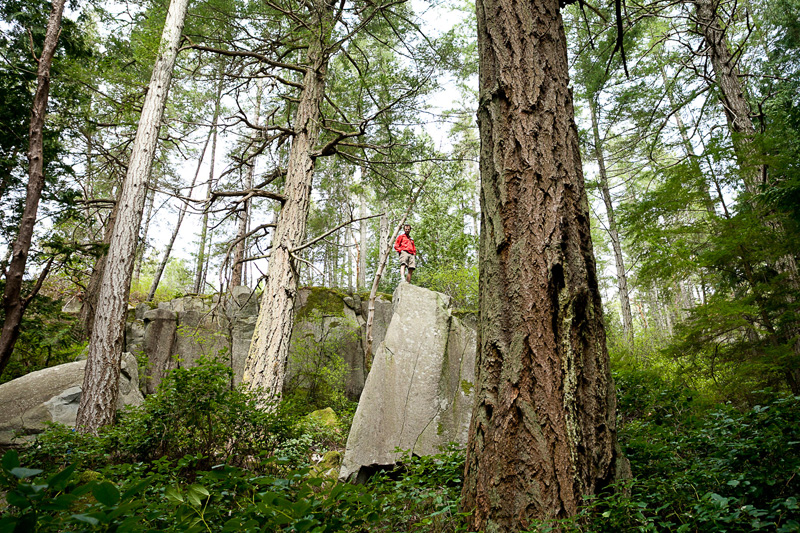
China Investment Corporation Eyes BC Forests, Spells FIPA Danger
The China Investment Corporation (ICI), one of the world's largest sovereign wealth funds, is set to become a powerful landowner in British Columbia if a $100 million deal with Island Timberlands, the second-largest owner of private forests in the province, goes through.
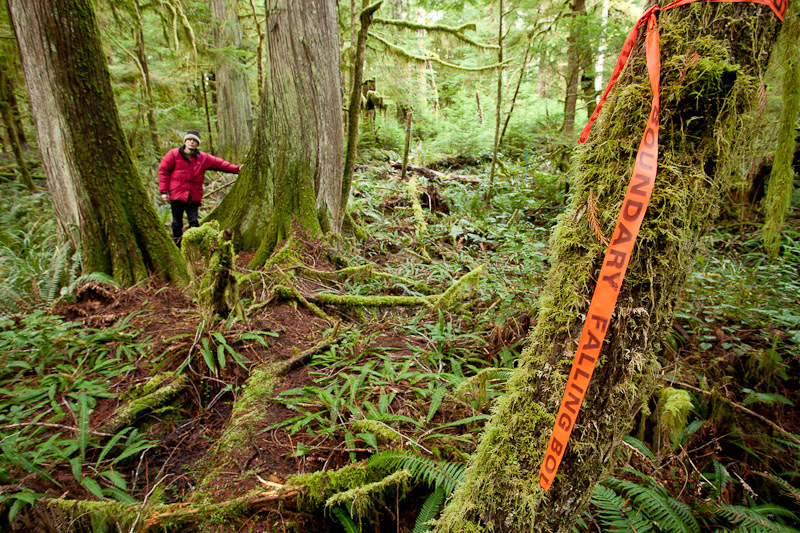
Chinese seek stake in BC forestry company as FIPA decision looms
Potential impacts of a $100 million dollar deal between China Investment Corporation (CIC) and Brookfield Asset Management Inc, the majority shareholder in Island Timberlands (IT), have made headlines internationally and alarmed activists in British Columbia. The story was first reported in early November by the Wall Street Journal.
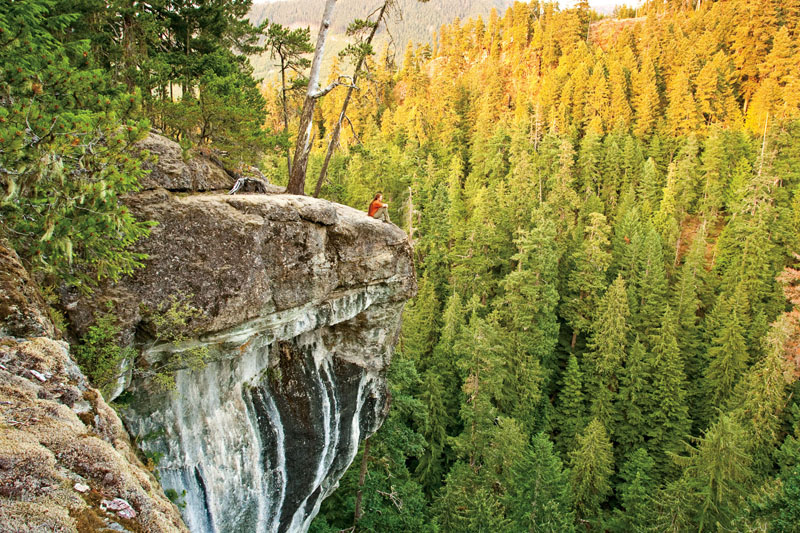
Media Release: Chinese Goverment’s Ownership of BC’s Forests Could Undermine New Environmental Laws, Forestry Jobs, and First Nations
Conservationists with the Ancient Forest Alliance (AFA) are raising the alarm that the potential ownership of vast tracts of British Columbia’s private forest lands by the Chinese government could negatively impact BC’s environmental laws, forestry jobs, and the rights of First Nations in light of the proposed Canada-China Foreign Investment Promotion and Protection Agreement (FIPA).

Big Trees of Vancouver featured in major Chinese-language newspaper.
Here are a series of articles in the Sing Tao Daily News, a major Chinese-language newspaper in Vancouver, about the biggest trees of Vancouver that also features the Ancient Forest Alliance and our campaign to protect them!
Take Action
 Donate
Donate
Support the Ancient Forest Alliance with a one-time or monthly donation. Send a Message
Send a Message
Send an instant message to key provincial decision-makers.Get in Touch
Earth-Friendly Web Design by Fairwind Creative
- Home
- About Us
- Our Work
- Ancient Forests
- Recent News
- Photos & Media
- Map of Gallery Regions
- Themes
- Videos
- Inland Rainforest
- Mainland
- Haida Gwaii
- Sunshine Coast
- Sunshine Coast: Powell River
- Vancouver Island South
- VI South: Caycuse Watershed
- VI South: Mossy Maples
- VI South: Port Renfrew
- VI South: Port Alberni
- VI South: Walbran Valley
- Vancouver Island Central
- VI Central: Clayoquot Sound
- VI Central: Cortes Island
- VI Central: Tahsis
- Vancouver Island North
- Take Action
- Store
- Donate
